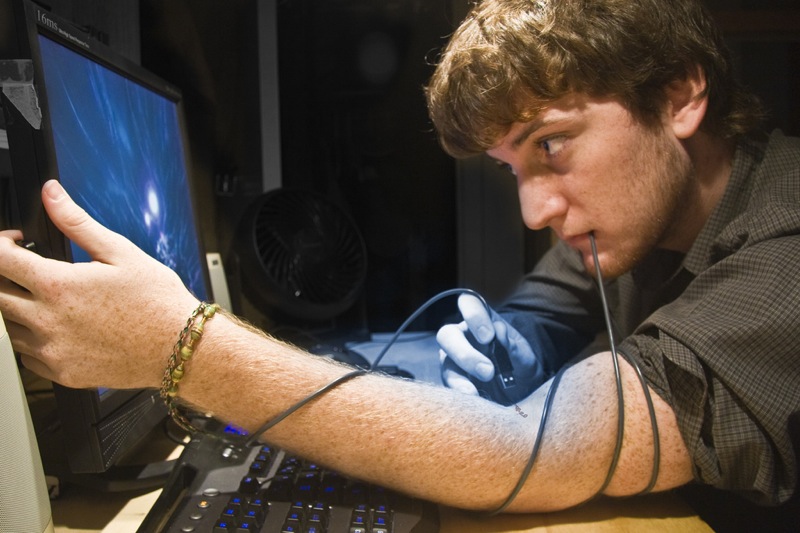Scream against screens: PCs, gadgets, TVs are ruining our kids


--
Modern kids and teenagers are never here. They're always there. Get in the same room, car, or any place with them, and they whip out a beeping, buzzing gadget - sometimes two or three of them - and vanish into another world.
Correction - they don't whip it out. It was already out, hot and smoking from hours of previous persistent use.
If they're not hallucinating on that 3-inch screen, they're tapping away at the PC, zapping away at the Playstation, rotting away at the television, or "dropping a tab" of tablet computing. Typically, they ingest some combination of these at the same time!
This extreme screening can't be good, can it?
Tweet this answer: No!
According to psychologist Dr. Aric Sigman, it's wrecking their attention spans, triggering depression, and addicting them. Oh, you might say, there's nothing new about a few distracted, morose teenagers. Well how about the physical effects then? The sedentary lifestyle that comes with screen addiction is linked to heart disease, strokes and diabetes, the doctor notes.
DAMAGING THE PLANET TOO
(I'll add another killer consequence: It contributes to unhealthy global warming, with all the CO-spewing electricity plants that are driving hundreds of thousands of data centers and billions of power supplies and battery chargers that maintain the madness).
Sigman wrote his observations in the Archives of Disease in Childhood (there's one for your coffee table) as reported by the BBC.
Screens are obliterating kids' attention spans because they're linked to the brain's release of the chemical dopamine, the BBC articles states, although it's a little bit fuzzy in explaining the exact connection Sigman makes between dopamine, screens and attention.
Sigman points out that the average ten-year-old has access to five screens at home, that British teenagers spend up to six hours a day on screens (surely some spend more), and that adverse effects set in after two hours. That's a lot of adversity!
THE DOCTOR SAYS SO
In case you needed clinical proof, Sigman writes, "Children routinely engage in two or more forms of screen viewing at the same time."
Let's be clear: Not all kids are doing this (just most!), and such screen immersion won't turn every child into a basket case.
But there seems to be plenty of evidence that we've let a bad genie out of the bottle - and we adults often set poor examples with our own screen addictions.
It's a complicated issue, because the same techno-wizardry that feeds those diabolical contraptions also does the world a lot of good - we all use and appreciate the trappings of information technology and connectivity every day. That bad genie has a good twin. There's no putting them back. But let's command the one that's turning children into mush to cease and desist.
Stay here then and tell me - just how are we going to do that?
Photo: Daniel Conway via Flickr.
This post was originally published on Smartplanet.com